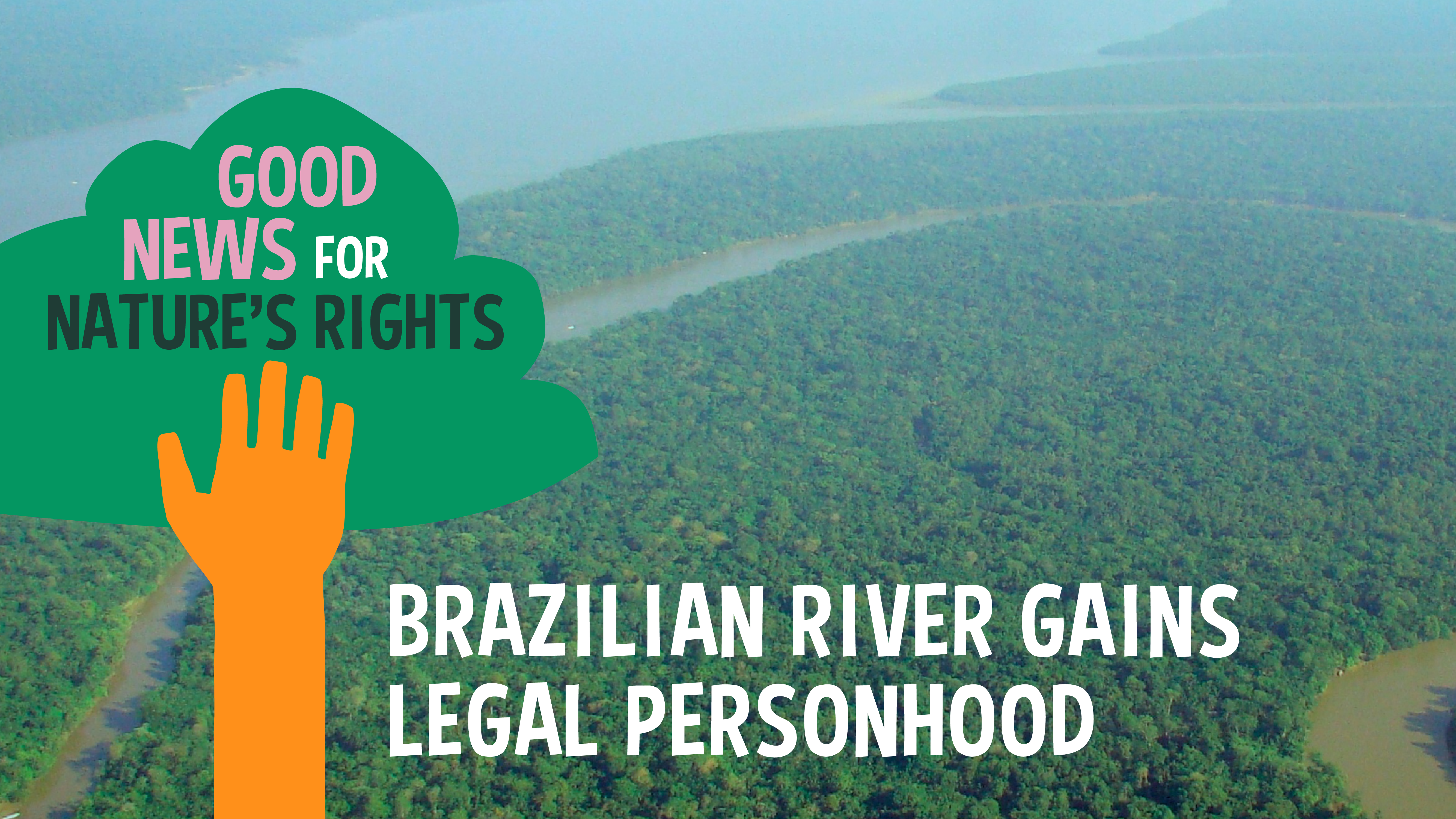
25, August 2023
Brazilian River Gains Legal Personhood
A river in the Brazilian Amazon has just become the latest in the world to be granted legal personhood status.
The Komi Memem River, known as Laje on non-Indigenous maps, is the lifeblood of the people who live on its banks. One of six subgroups of the Wari’ people, the Oro Waram have used the Komi Memem for fishing, washing, transport and leisure for centuries.
Lately, however, their vital water source has been under threat. A combination of land-robbing, illegal deforestation and pesticide pollution from rapidly-growing soybean farming has put Komi Memem in serious danger.
Hope for the Future
But now there’s hope, thanks to Rights of Nature law and Francisco Oro Waram, a teacher and Indigenous leader. He proposed an innovative law to grant legal personhood to the river, giving it the protection it urgently needs. In June, the municipality of Guajara-Mirim, which lies on the course of Komi Memem, passed that law.
Komi Memem and its tributaries are now classed as living entities with rights, such as having their natural flow maintained, and the crucial forest around them safeguarded. A committee will be tasked with overseeing the river’s wellbeing. It is the first river in the Brazilian Amazon to be granted legal rights – and hopefully it won’t be the last.
Rights for the Rivers
Komi Memem isn’t the only waterway to have been granted this special legal status. The Whanganui River in New Zealand became the first river in the world to be granted personhood in 2017. In 2019, all of Bangladesh’s hundreds of rivers were legally designated as living people. And Canada’s Magpie River, called the Mutuhekau Shipu by the Innu First Nation, gained legal personhood in 2021.
Here in the UK, no rivers have been granted legal personhood yet, but it may not be long before they are. In Sussex, a charter on the rights of the River Ouse, which is threatened by sewage pollution, is already underway.
What are the Rights of Nature?
The Rights of Nature movement is based on a guardianship model, meaning vulnerable non-human entities like rivers can be represented in court. On a planet than needs protecting more urgently than ever before, this new way of thinking (and acting) is gathering momentum. The movement is making a huge difference to the future of some of the world’s most precious natural assets. We love sharing Good News for Nature’s Rights, so expect to see more of these Nature-positive stories here soon.

